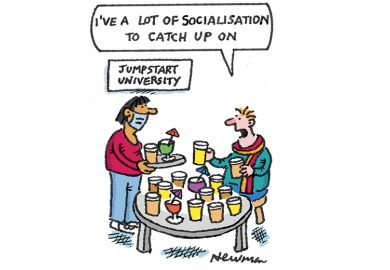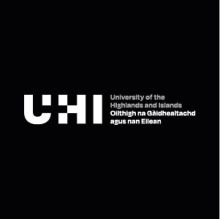
Dominic Cummings’ dislike of much of UK academia was thinly disguised while he was inside Downing Street as Boris Johnson’s chief adviser, but it arguably drove much of Britain’s science policy in recent years. His hostility has been confirmed by a Reddit chat room story that he gleefully retweeted to his followers, which had apparently been posted by a young physicist whose philosopher husband’s obsession with Hegel had “reached the point of creepiness”. “He keeps a framed picture of Hegel on the nightstand in our bedroom – in fact, he even changed his phone’s background from a picture of me to the same picture of Hegel,” confided the anonymous scholar. “I feel like I am competing with a 200-year-old philosopher for my husband’s attention,” she continued, stating that he had “implied my work is a waste of time” because of its non-Hegel focus. Although the bizarre agony aunt-style post seems almost certainly invented, Mr Johnson’s ex-head honcho described it as a “work of absolute beauty”, encapsulating “modern academia, university life, modern philosophy and marriage”. “I say ‘dump him, he will only get worse, you deserve better,’” Mr Cummings advised.
Have the Ig Nobels become too sensible? This year’s most high-profile winner – a Cornell University-led investigation to how rhinos fare when transported upside under a helicopter – provided some unusual images, but the study’s purpose was fairly self-evident and its usefulness unarguable. The same can’t be said for the genuinely oddball past winners of the prize run to “first make you laugh and then think” – such as the Brit who spent three days living on all fours as a goat in the Alpine mountains or the scientist who calculated the calorific value of a caveman. This year’s laureates didn’t really seem too surreal at all, with various winners tackling political corruption, chewing gum on pavements and why pedestrians don’t collide with each other more often. Have the famously wacky Ig Nobels perhaps succumbed to the impact agenda, which pushes scholars to undertake less quirky research with more likely real-world applications?
Newcastle University has apologised to a medical student who complained that she had been penalised in a practical assessment for wearing a “short dress”. In a Twitter thread posted on 9 September, the Russell Group university said it was sorry for “any offence or distress” caused when a participant in a clinical role-play exercise objected to a student’s knee-length black dress, allegedly claiming that her “short dress with no leg coverings…looked unprofessional”. According to the fourth-year medic, who goes by Graduate Medic on Twitter, the examiner agreed and issued a “yellow card”, which was later rescinded on appeal. “Their response was ‘It was the most inappropriate dress they had ever seen,’” stated the complainant, who was told that the patient “wouldn’t want me to treat their friends or a family member because of it”, she added. Despite Newcastle’s apology, its puritanical stance on bare legs did not go down well on Twitter, with outraged medics comparing its attitudes to those of the Taliban.
Saying sorry is a theme in higher education this month, with a university leader apologising for having declared that he wanted to eliminate “vanity courses” from his institution. Todd Walker, who has led Scotland’s University of the Highlands and Islands since February, told The Inverness Courier that his institution was “not here to study something for which there is no direct employment, growing market or sector”. “I’d go on the record as saying the days of having a vanity course, unit or subject are over,” said Professor Walker at the start of a curriculum review at UHI that would, he explained, “examine, among other things, workforce alignment and demand”. The comments provoked a furious backlash on social media, leading to a contrite climbdown from the Australian. While Professor Walker did not suggest that he had been misquoted, he said he was “sorry for any confusion or distress this has caused”. “There is no hidden agenda, or message in this article from me that some courses or subject areas are more important than others,” he said, unconvincingly.
A Nazi-sympathising former student who downloaded bomb-making instructions has been sentenced to read classic novels including Pride and Prejudice. Ben John, who had studied at De Montfort University, was told that he would avoid prison as long as he steered clear of white-supremacy literature and read books and plays by Jane Austen, William Shakespeare, Thomas Hardy and Charles Dickens, Leicestershire Live reported. “Think about Hardy. Think about Trollope,” ordered judge Timothy Spencer, who warned John that he would test him on the canonical texts at a hearing in January. “I will test you and if I think you are [lying to] me you will suffer,” he said.
Mandatory vaccinations for US students have faced criticism after an undergraduate claimed that he was barred from taking online classes because he had not had his Covid jabs. According to Breitbart News, Logan Hollar was locked out of his computer accounts by Rutgers, the State University of New Jersey because he had not complied with its vaccination mandate – despite only studying remotely from his home. “I’ll probably have to transfer to a different university,” said the 22-year-old, who argued that jabs were unnecessary because, for him, Covid was not “scary because he is healthy” and “not in an at-risk age group”. Rutgers defended its position, saying vaccine waivers were provided for “fully online degree-granting programmes” but not classes that are fully remote but are part of a course where other students are on campus, as in Mr Hollar’s case.
Register to continue
Why register?
- Registration is free and only takes a moment
- Once registered, you can read 3 articles a month
- Sign up for our newsletter
Subscribe
Or subscribe for unlimited access to:
- Unlimited access to news, views, insights & reviews
- Digital editions
- Digital access to THE’s university and college rankings analysis
Already registered or a current subscriber?






